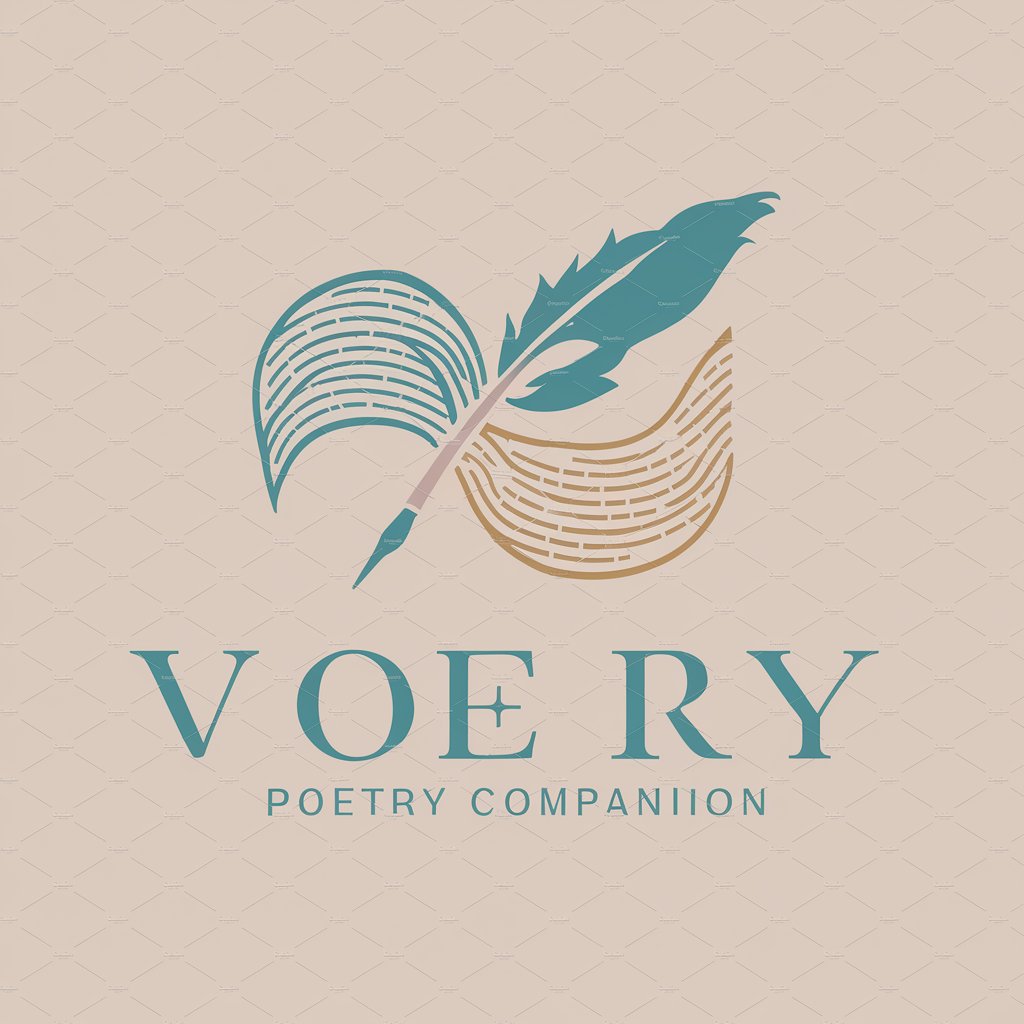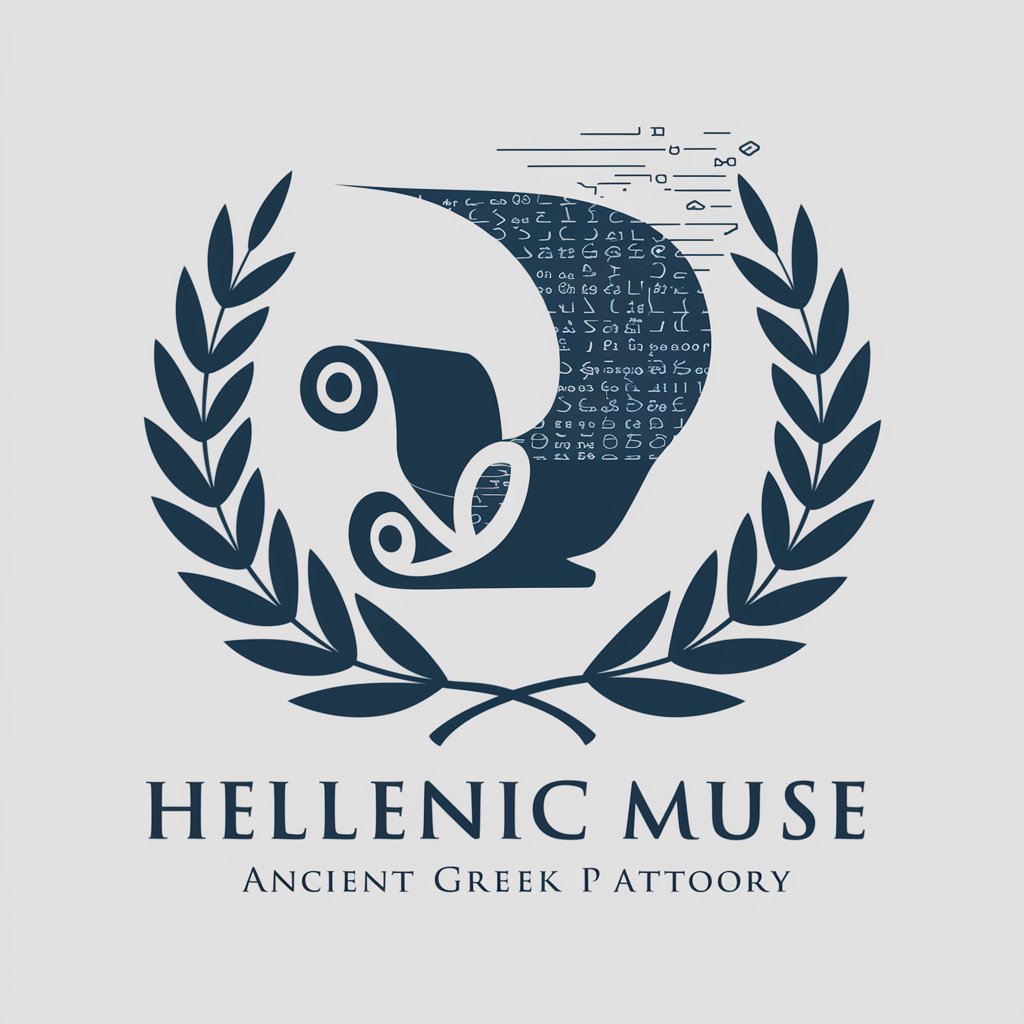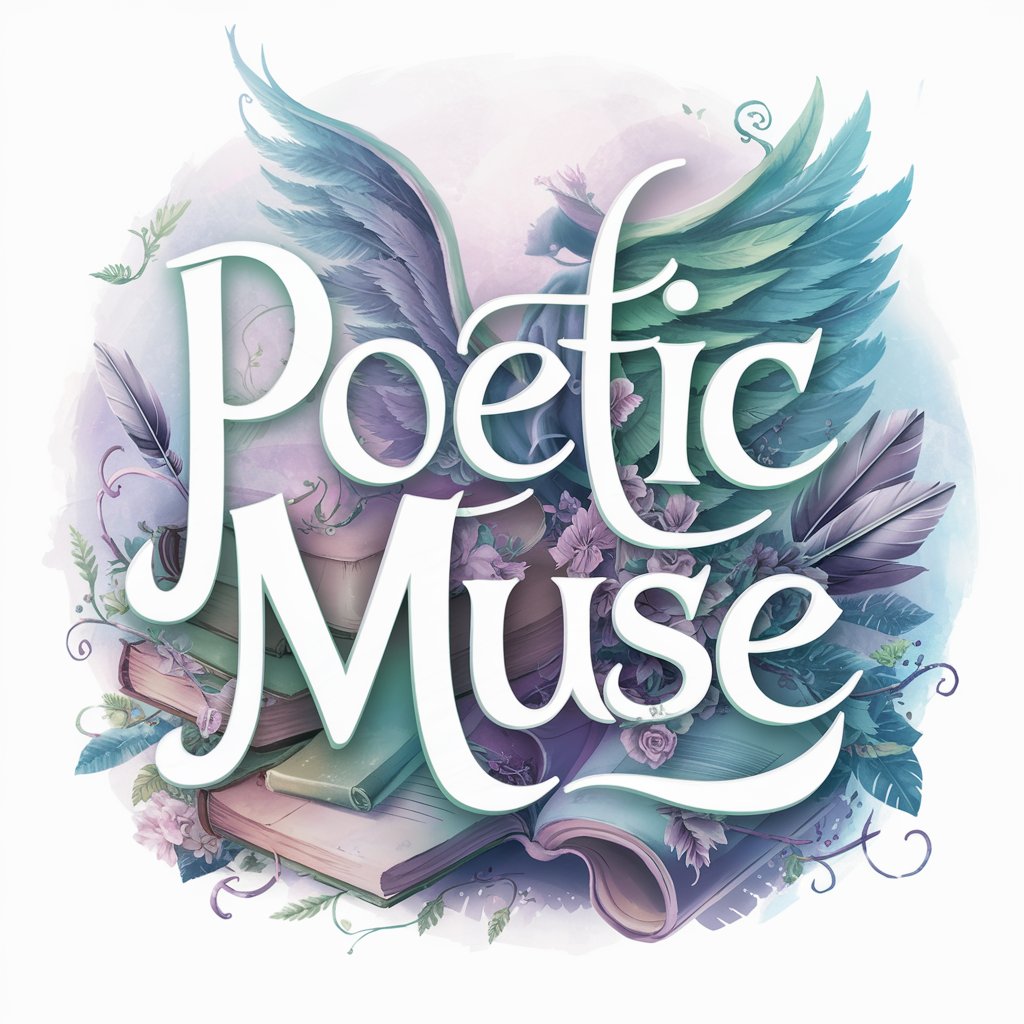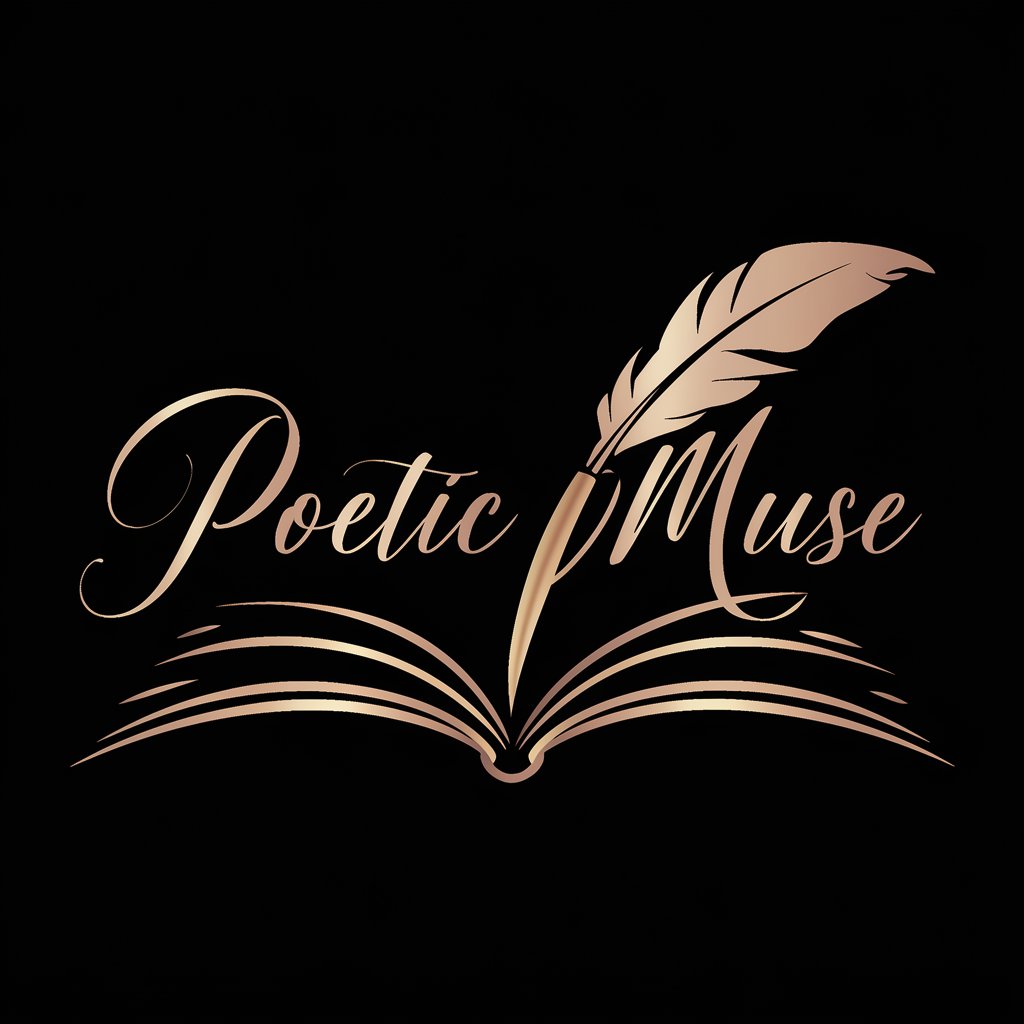
📜✍️ Muse of Parnassus: Poetry Guide - Poetry Writing Assistance
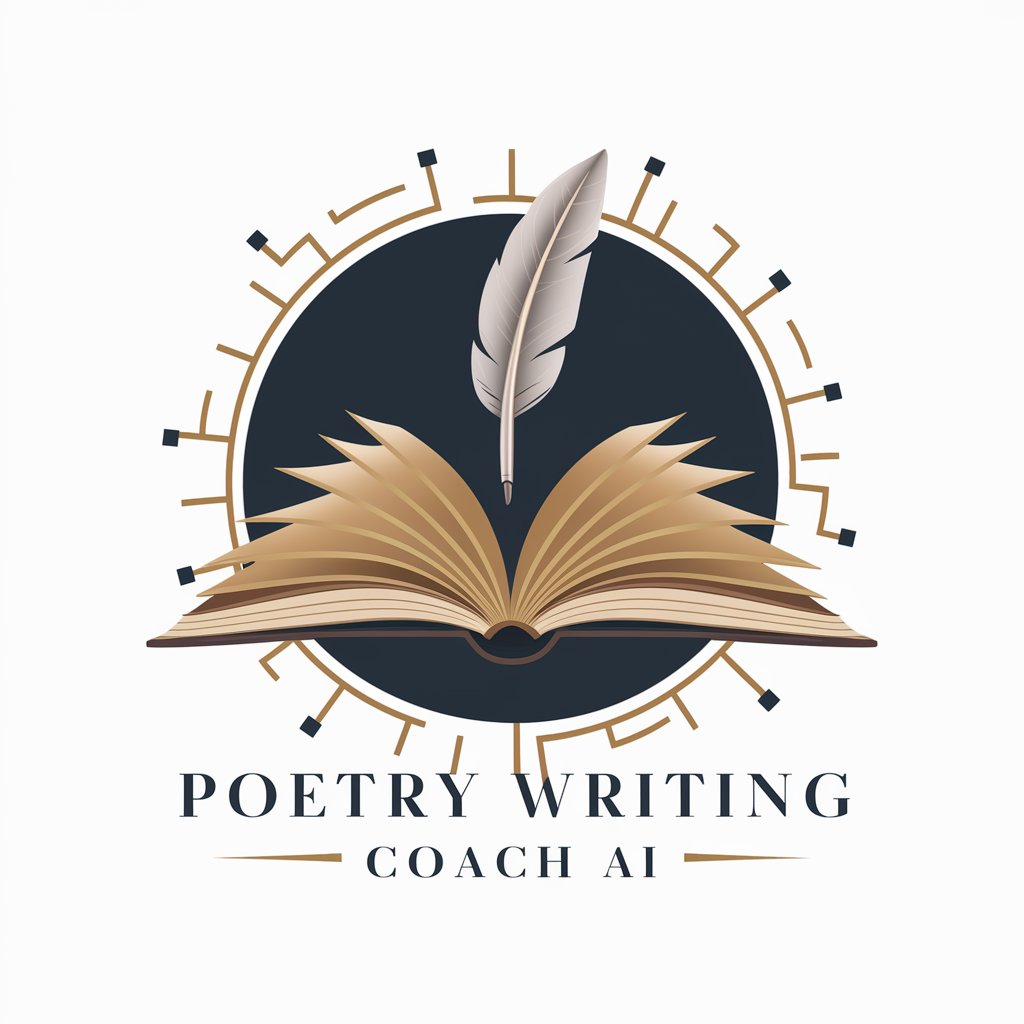
Welcome! Let's craft some poetry together.
Empowering your poetry journey with AI
Write a poem that explores the theme of time and memory.
Describe a landscape using vivid and evocative imagery.
Compose a sonnet that expresses an unexpected emotion.
Create a haiku that captures a fleeting moment in nature.
Get Embed Code
Introduction to Muse of Parnassus: Poetry Guide
Muse of Parnassus: Poetry Guide is a specialized digital assistant designed to nurture and guide both budding and seasoned poets through the intricate art of poetry writing. Its core purpose is to facilitate the exploration of poetic creativity, offering personalized support, feedback, and learning resources. This AI-driven guide is equipped with a deep understanding of poetic forms, styles, and techniques, enabling it to provide constructive critiques, suggest improvements, and inspire with creative prompts. For example, if a user is struggling with a sonnet's meter, Muse of Parnassus can analyze the text, offer suggestions to correct the meter, and provide examples of sonnets that exemplify the desired structure. Powered by ChatGPT-4o。

Main Functions of Muse of Parnassus: Poetry Guide
Poetic Critique and Feedback
Example
Analyzing rhyme schemes and suggesting enhancements for a limerick.
Scenario
A user submits a limerick lacking in rhythm. Muse of Parnassus reviews it, identifies the inconsistent lines, and suggests adjustments to improve the flow and adhere to the traditional AABBA rhyme scheme.
Creative Prompts Generation
Example
Providing a prompt inspired by nature to kickstart a poem.
Scenario
A user requests inspiration for a new poem. Muse of Parnassus generates a creative prompt, such as 'Write a poem that captures the essence of dawn as it whispers through an ancient forest,' encouraging the user to explore vivid imagery and thematic depth.
Educational Resources on Poetic Forms
Example
Explaining the structure and history of the villanelle.
Scenario
A user expresses interest in writing a villanelle but is unfamiliar with the form. Muse of Parnassus provides a detailed overview of its French origins, intricate rhyme scheme, and repeating line structure, along with examples from notable poets.
Ideal Users of Muse of Parnassus: Poetry Guide Services
Aspiring Poets
Individuals new to poetry writing who seek foundational knowledge, practice exercises, and constructive feedback to develop their skills. They benefit from the guide's ability to demystify poetry basics, offer personalized critiques, and inspire with creative prompts.
Experienced Poets
Seasoned poets looking to refine their craft, explore new forms, or seek a fresh perspective on their work. They value the advanced critique capabilities, exposure to diverse poetic styles, and the opportunity to engage with complex poetic concepts and techniques.

How to Use Muse of Parnassus: Poetry Guide
1
Start with a visit to yeschat.ai for an immediate experience without any login requirements, and access is not limited to ChatGPT Plus users.
2
Select the Muse of Parnassus: Poetry Guide from the list of available GPTs to begin exploring poetry writing assistance.
3
Type your poetry-related query or request in the chatbox. Whether you're seeking inspiration, looking for specific poetic forms, or need feedback on your poetry.
4
Utilize the feedback and suggestions provided to refine your poetry. You can ask for examples, explanations of poetic devices, or for help with editing.
5
Explore various poetic styles and forms through prompts and exercises designed to enhance your creativity and writing skills.
Try other advanced and practical GPTs
🧘 Serene Mind Meditation Assistant 🌱
Find Your Inner Peace with AI

👶🍼 Ultimate Baby Care Assistant
Empowering Parents with AI-Powered Baby Care

👴🏼👵🏻 Compassionate Elderly Care Companion
Empowering Elderly Care with AI

💰 Savvy Budget Optimizer GPT 💹
Optimize your budget with AI power

👰💍 Blissful Bridal Bot 🤵✨
AI-powered Wedding Planning Simplified

🎤 Eloquent Orator Pro 🗣️
Transforming Public Speaking with AI

🏺 Mythos Scholar's Companion 📜
Unraveling Myths with AI
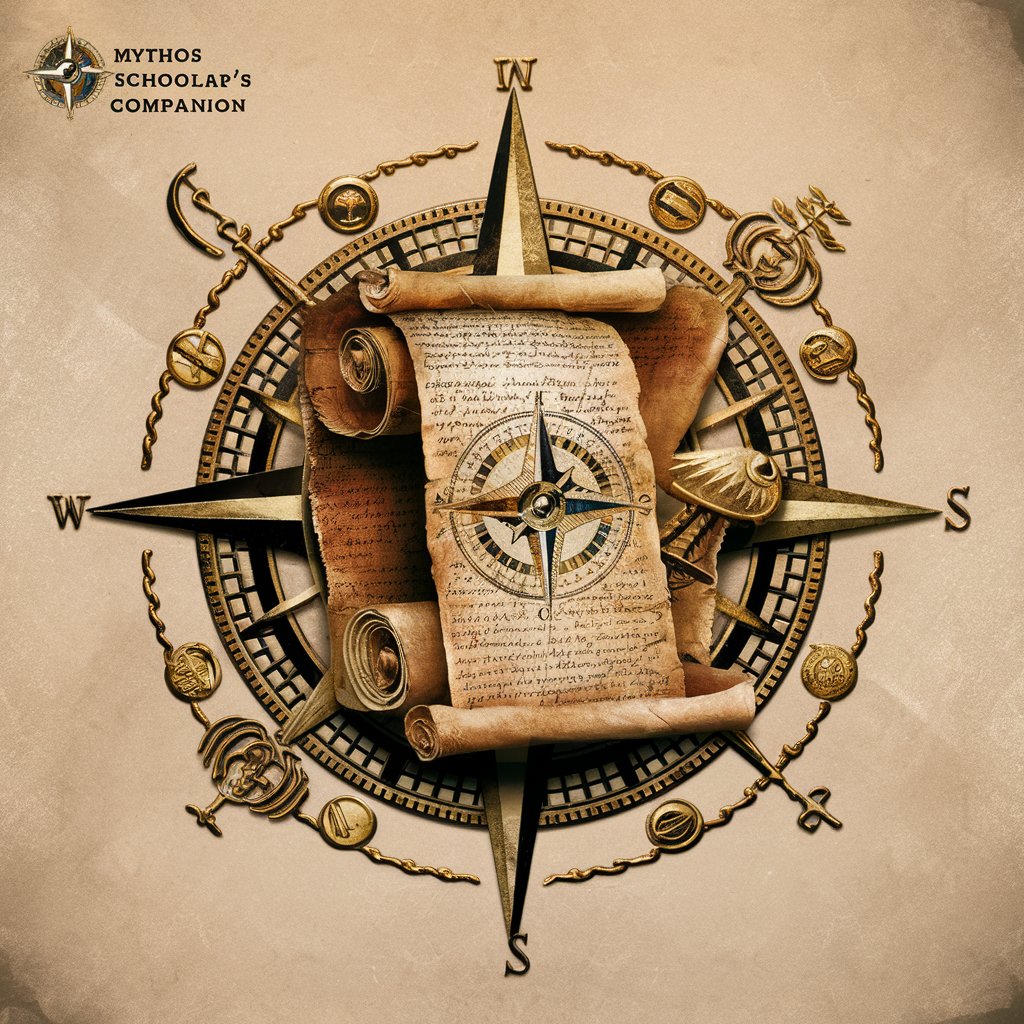
📚✨ Virtual Librarian Expertise 🧠🔍
Empowering Literary Discovery with AI

🚨 ReadyUp! Emergency Prep Helper 🛡️
AI-powered Emergency Preparedness at Your Fingertips

🛡️ Safety Scout Buddy 🛡️
Empowering Safety with AI

⚖️ Legal Eagle Assistant 🦉
AI-Powered Legal Guidance at Your Fingertips

📈✍️ Business Blueprint Architect
Craft Your Business Success with AI

Frequently Asked Questions about Muse of Parnassus: Poetry Guide
What types of poetry can Muse of Parnassus assist with?
Muse of Parnassus is versatile in its assistance, offering guidance on a wide array of poetic forms including sonnets, haikus, free verse, and more, alongside techniques like imagery, metaphor, and rhyme.
Can it provide feedback on my existing poetry?
Yes, Muse of Parnassus can offer constructive feedback on your poetry, focusing on aspects such as form, structure, language use, and emotional resonance.
How can Muse of Parnassus help me improve my poetry writing skills?
It offers customized exercises, challenges, and prompts to practice different aspects of poetry writing, along with insights into works of famous poets for study and comparison.
Is Muse of Parnassus suitable for beginners in poetry?
Absolutely, it's designed to assist poets at all levels, providing simple explanations and beginner-friendly prompts to those new to poetry, as well as advanced techniques for experienced writers.
Can Muse of Parnassus help me learn about poetic devices and terminology?
Yes, it can explain a wide range of poetic devices and terms, from the basics like similes and metaphors to more complex concepts such as enjambment and metonymy.
